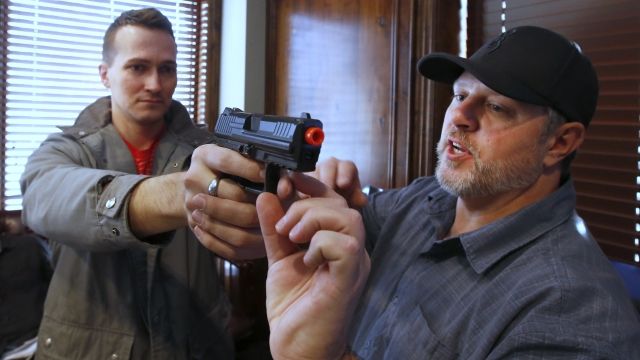Eight states have passed laws allowing concealed carry on college campuses. But in a new report, Johns Hopkins researchers argue that legally armed citizens don't prevent mass shootings and may actually lead to more violence.
Supporters of campus carry laws say individuals should have the right to protect themselves.
But the authors examined previous studies on gun violence and found armed citizens rarely stopped a mass shooting or reduced the number of victims.
SEE MORE: Texas Campus Carry Starts As UT Austin Remembers Mass Shooting
A study cited in the Johns Hopkins report found only 2 percent of college campus shootings from 2013 to 2015 involved a shooter "on a rampage." Nearly half of the shooting incidents were fights that escalated to gun violence.
Allowing guns in the hands of college students may also heighten other risks. The report points to binge drinking, higher suicide rates and risk-taking attitudes as examples of why college campuses aren't the place for more guns.
The Johns Hopkins report argues that even if permit-holders could protect against mass shootings, the net effect of more guns on campuses would be more deaths, injuries and threats of gun violence.


